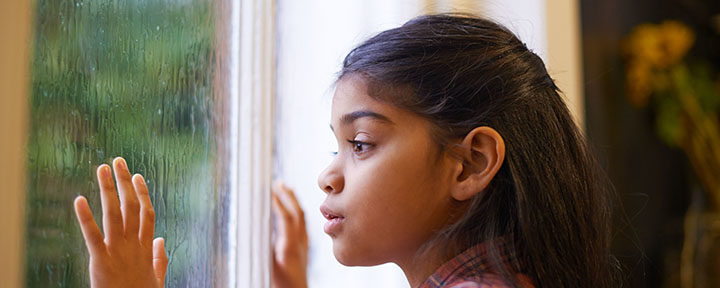
Originally published on May 20, 2019
Discover how rain affects your air conditioner
The simple answer? Rain is not harmful to your AC unit, whether it is a central system or window unit. A little bit of rain can actually have a positive impact, but there is more to the story.
Depending on your climate, there are certain weather patterns that you may want to prepare for when it comes to AC upkeep and maintenance. For example, Gulf-area homeowners have to be more concerned about flood conditions, while Northerners often wonder whether they should cover their AC units over winter months. Let’s break it down a bit further.
Your outdoor AC unit is built to withstand weather patterns.
Seasonal rain patterns will not have a negative impact on your AC unit. In fact, a little rain is helpful for removing any vegetation or debris that could otherwise remain lodged in the unit!
Your unit’s hardware is designed for durability, from the materials it is made from to the way the AC unit actually works. But the system is not at peak performance when it’s burdened with leaves, dirt or other buildups so if your area has been short on rain during spring through fall months, you may even want to spray the unit down with a hose. And don’t worry about getting the electrical components wet — any electrical wiring, such as those used in the condenser coil, will be insulated from wet or rainy conditions.
Are window AC units also safe in rainy weather?
Similar to central air units, window units are built to withstand the weather. However, there are some special considerations to keep in mind, especially since these smaller units are less likely to be maintained by a professional.
When using a window unit, you want to ensure that your home’s interior is properly protected from the potential of water seeping in around the edges and causing damage. For that reason, as well as to improve efficiency, it’s well worth it to take the time to ensure that your window AC unit is sealed properly (even if you plan to remove it during cooler seasons). Proper insulation will also help to prevent added humidity that window AC units can often lead to.
What to do to protect your AC unit during severe weather conditions.
Severe weather conditions, such as flash floods, are a different story. Any water that submerges the outdoor condensing unit could result in a short circuit, ultimately damaging the unit. This can also be a concern when lightning is present and poses a risk of striking the unit directly.
Storm Damage:
Even though heavy rains cannot damage your AC unit, the winds accompanied by the same rain can leave dirt, leaves, twigs, and other debris to damage the condenser fan grille. Even objects falling on your unit, such as tree branches, from the storm can cause damage. It is important to note that if there is damage on the exterior, the interior might be at risk too. Therefore, it is necessary to inspect both the exterior and interior of the unit once the storm subsides.
Flooding:
Central AC units are built to withstand different weather conditions. Although, if your area is experiencing heavy rains with floodwaters exceeding 15 inches, it is advisable to get your unit inspected by a professional contractor.
Corrosion:
Many homeowners prefer to cover their AC units for the winter if their internal parts are exposed. Avoid covering your unit with plastic wraps or garbage bags because the moisture from the condensation can stay trapped inside rusting and corroding metal parts. It is advised to use a covering that allows ventilation. Lack of ventilation or proper openings in the cover can increase the growth of mold and mildew causing further damage to the unit.
It’s good to know that you won’t have to worry about your AC unit withstanding normal weather conditions. But, when facing a more severe forecast, these simple precautions can go a long way.


